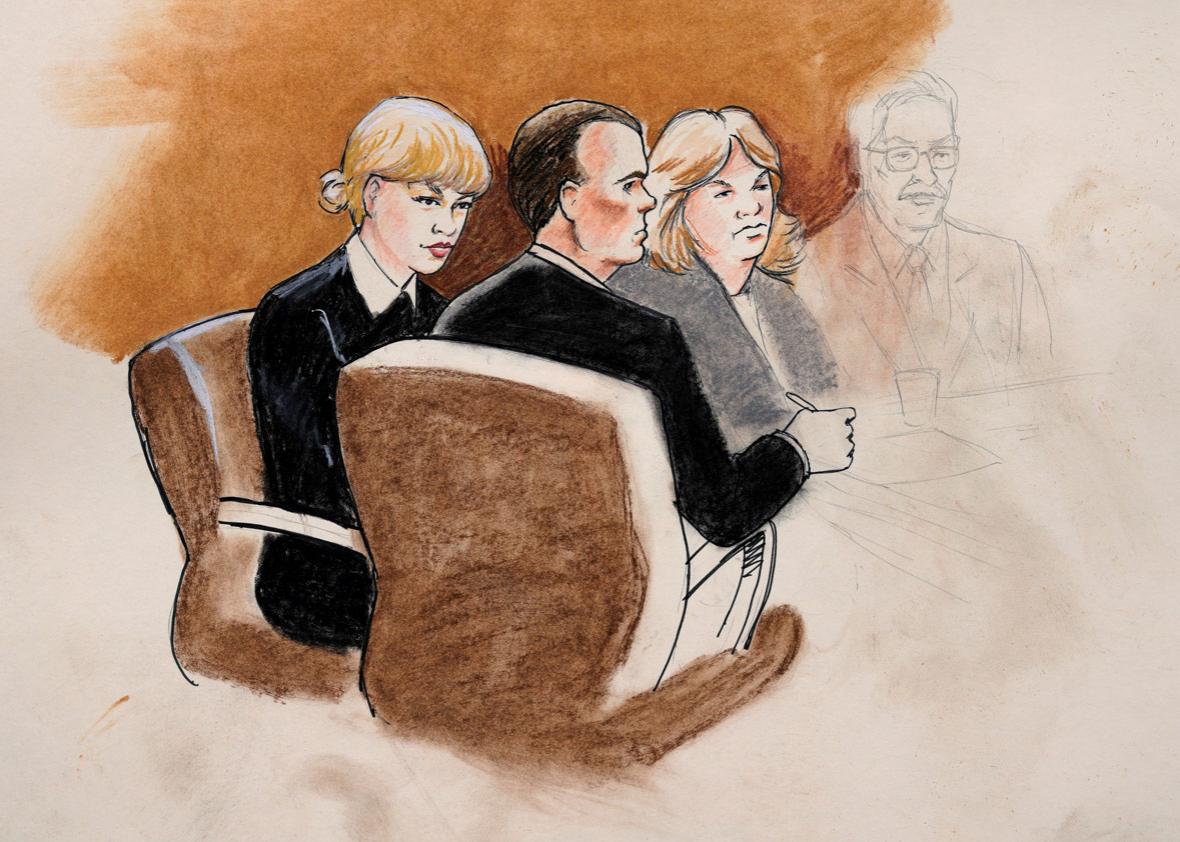Taylor Swift’s Powerful and Bold Testimony Against Sexual Assault Inspires Justice
Taylor Swift, the pop superstar, recently took the stand in a Denver federal courthouse to testify about a disturbing incident that occurred in 2013. Swift bravely recounted how a then–country radio DJ violated her during a photo op by grabbing her butt underneath her skirt. The incident left her visibly uncomfortable and shocked. In contrast, David Mueller, the DJ in question, denies the allegations and claims he only touched Swift’s rib cage during the encounter. He even suggested that a colleague may have been the one who groped her.
Swift’s testimony was powerful and unwavering as she insisted that the grope was intentional and not accidental. She described the incident as horrifying and despicable, determined to stand up for herself and prove the truth. Despite the trauma of the assault, Swift and her family decided not to go to the police to avoid a public scandal. Instead, they informed Mueller’s employer, who promptly fired him. However, two years later, Mueller sued Swift for $3 million, leading her to countersue for $1.
During the trial, both parties presented a photo taken during the photo op as evidence. Swift’s legal team argued that the photo clearly showed Mueller’s inappropriate behavior, while Mueller’s attorney tried to discredit Swift’s account by questioning the photo’s details. Swift remained resolute in her stance, aiming to set an example of strength for other women facing similar violations.
Swift’s testimony serves as an inspiration for her young fans, showcasing her courage and determination to seek justice in the face of adversity. Despite her fame and resources, Swift faces similar challenges as other assault survivors in her pursuit of accountability. She endures the emotional toll of reliving the traumatic incident while combatting efforts to undermine her credibility.
Swift’s unwavering stand in court sends a powerful message to women confronting sexual assault and challenges the victim-blaming rhetoric prevalent in such cases. Her refusal to be made to feel responsible for her assailant’s actions highlights the importance of supporting and believing survivors. Swift’s trial serves as a reminder of the strength and resilience required to speak out against injustice, encouraging others to do the same.







